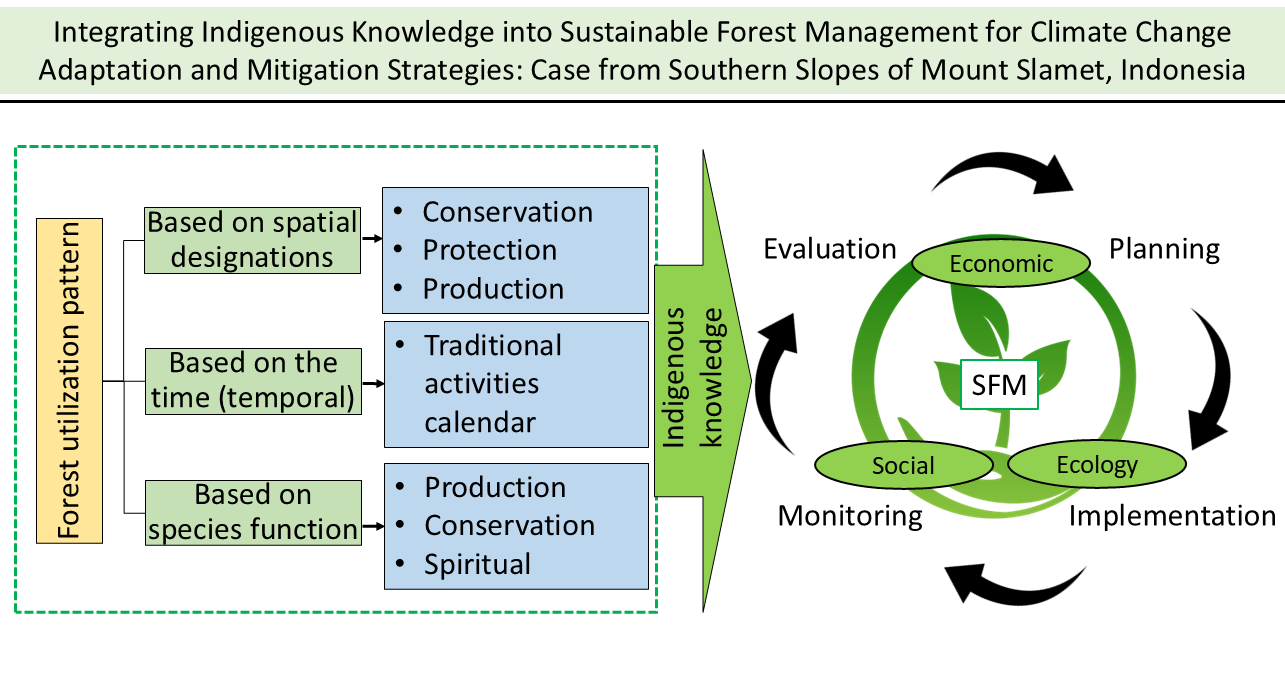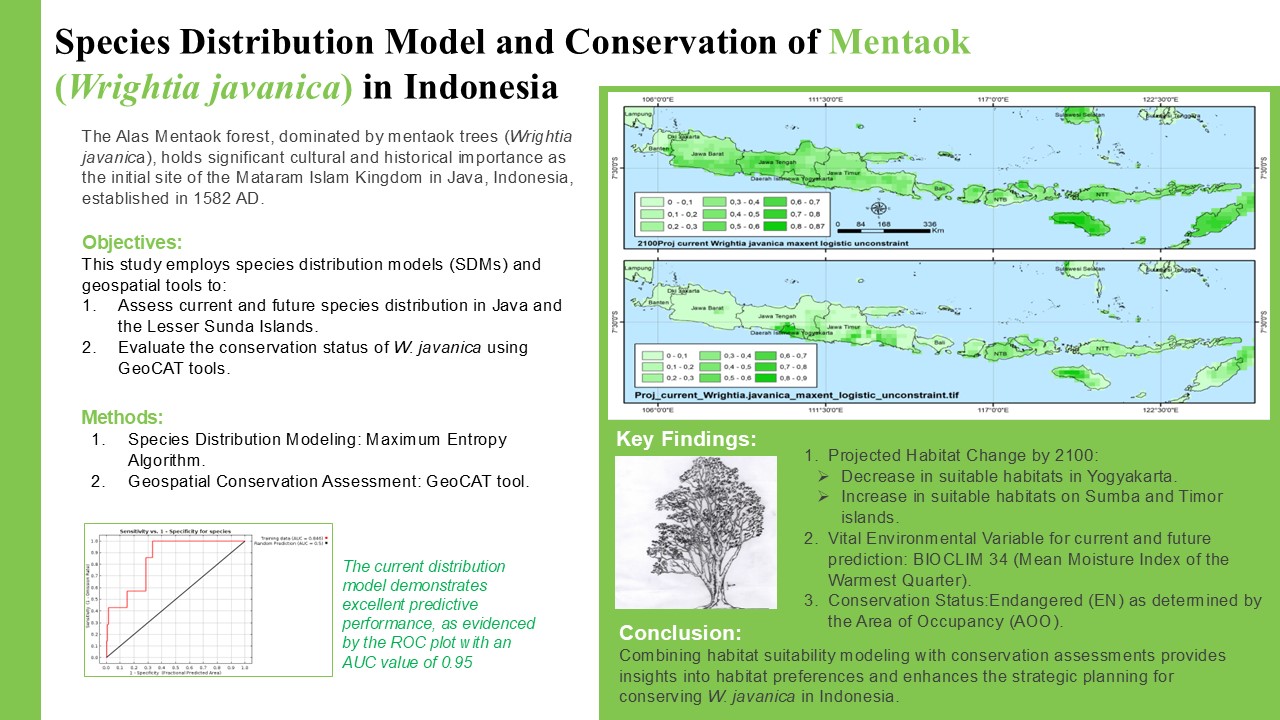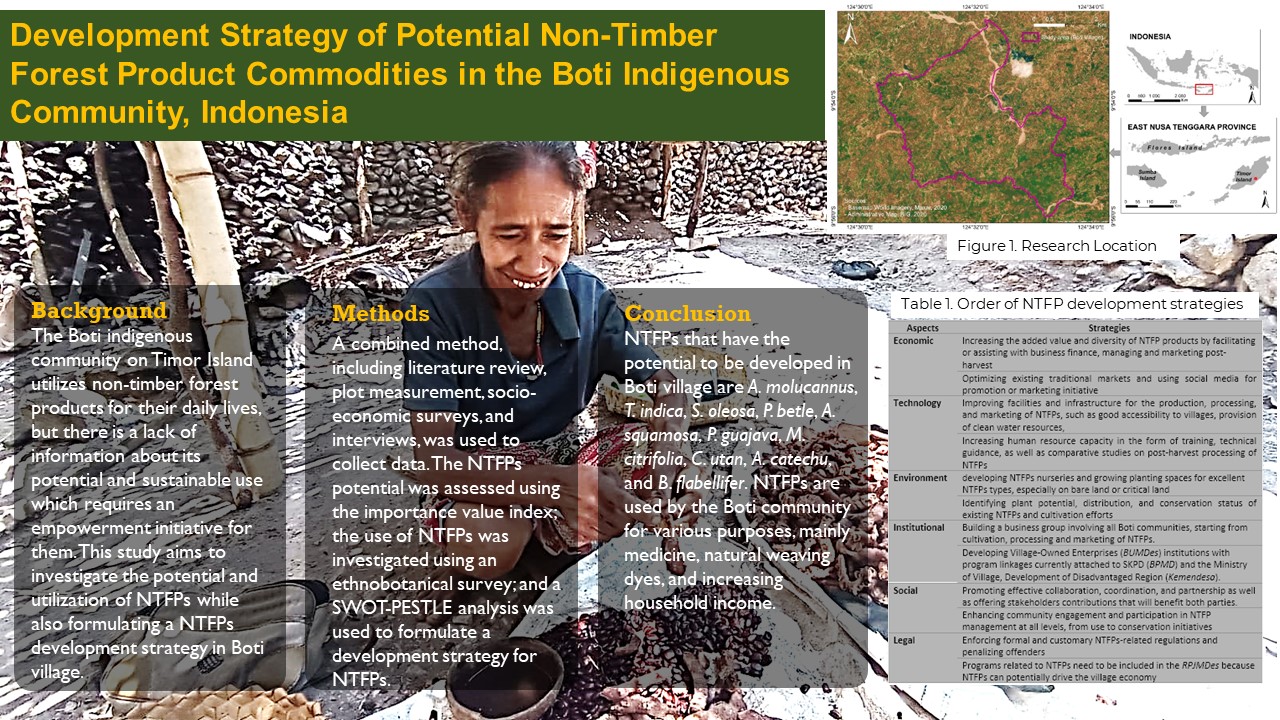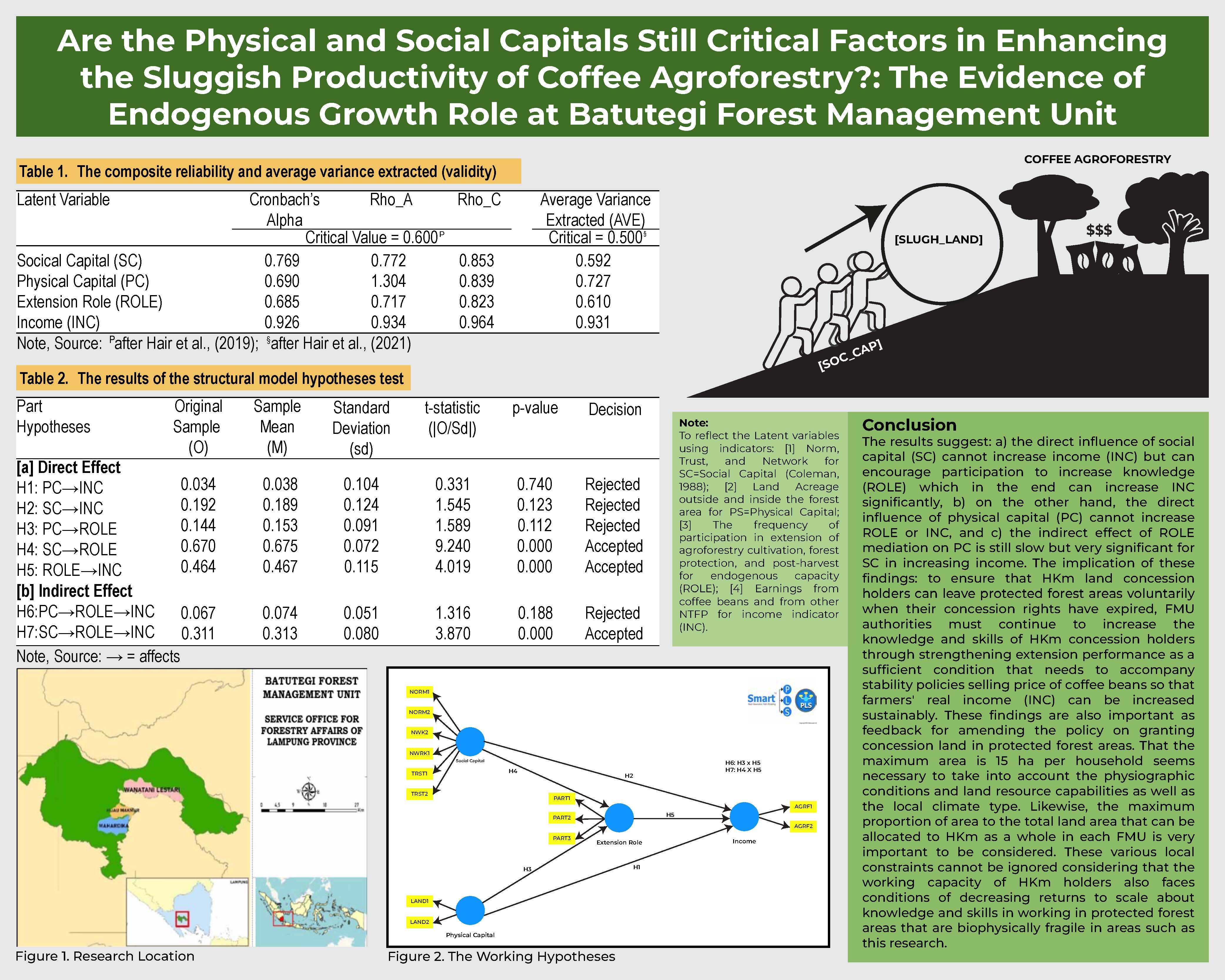Abstract
The Indonesian Government has empowered communities that are living adjacent to forests, but at the same time, protection forests are highly encroached by the local community. In response, our study aims at formulating strategies of community empowerment in protection forest management. Data collection through participatory observation, questionnaire surveys, interviews, and focused group discussions were conducted in the surrounding communities of protected forest areas in Sumbawa District, Indonesia. A combination of descriptive, participatory, and explorative approaches were used for data analysis. The knowledge of local communities on protection forest conservation was found to be on an average level, while their attitudes towards conservation were assessed as being on a higher level. Community empowerment programs implemented by the government were shown to have no significant effect on knowledge improvement, but they were more effective in changing the community's attitudes regarding protection forest management. Local communities were shown to be willing to conduct conservation activities as well as looking for cash income. Therefore, our study suggested that community empowerment programs should link forest conservation with income opportunities for local people, such as implementing conservation agriculture (e.g. agroforestry), partnerships in the production and sale of non-timber forest products, and be conducting clearly reward and punishment for communities.
Authors
SetiajiatiF., HardjantoH., & HendrayantoH. (2017). Strategies of Community Empowerment to Manage Protection Forest Sustainably. Jurnal Manajemen Hutan Tropika, 23(2), 71-80. Retrieved from https://journal.ipb.ac.id/index.php/jmht/article/view/18342

This work is licensed under a Creative Commons Attribution 4.0 International License.
Jurnal Manajemen Hutan Tropika is an open access journal which means that all contents is freely available without charge to the user or his/her institution. Users are allowed to read, download, copy, distribute, print, search, or link to the full texts of the articles in this journal without asking prior permission from the publisher or the author. This is in accordance with the Budapest Open Access Initiative (BOAI) definition of open access.




